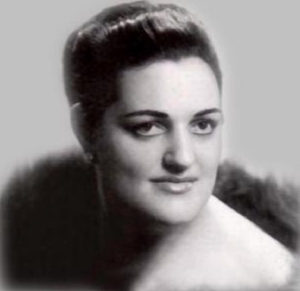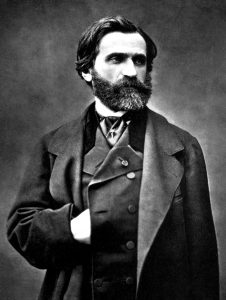Podcast: Play in new window | Download (Duration: 1:28:05 — 93.4MB) | Embed
Subscribe: Spotify | TuneIn | RSS | More
Anita Cerquetti (13 April 1931 – 11 October 2014), the subject of today’s episode, possessed a one in a million voice, enormous, but with prodigious flexibility, and of an immediately recognizable timbre and style of text projection. She skyrocketed to world fame when she replaced Maria Callas in the title role of Bellini’s Norma in Rome in January 1958. Before that, the young soprano, still in her twenties, had been steadily building a career, primarily in Italy but also internationally, working in Italy’s biggest houses and music festivals with the greatest maestri and fellow singers of the period (including Ettore Bastianini and Franco Corelli, both of whom are heard on the episode). Immediately after those Rome performances, however, Cerquetti canceled a series of subsequent performances of Bellini’s Il Pirata, and her live performances dwindled thereafter to a mere trickle. In the fall of 1960, not yet thirty years of age, she gave what proved to be the final performance of her career, a recording for Dutch radio of Abigaille in Verdi’s Nabucco. Cerquetti is considered to be one of the great operatic mysteries of the second half of the twentieth century. She made only two commercial recordings, so the majority of her recorded legacy stems from live and radio performances. In this episode, I share some of my favorites among those recordings, and discuss the personal issues that surrounded Cerquetti’s premature disappearance from the world’s opera stages as well as why her still unmatched accomplishments still captivate listeners to this day.
Countermelody is a podcast devoted to the glory and the power of the human voice raised in song. Singer and vocal aficionado Daniel Gundlach explores great singers of the past and present focusing in particular on those who are less well-remembered today than they should be. Daniel’s lifetime in music as a professional countertenor, pianist, vocal coach, voice teacher, and journalist yields an exciting array of anecdotes, impressions, and “inside stories.” At Countermelody’s core is the celebration of great singers of all stripes, their instruments, and the connection they make to the words they sing. By clicking on the following link (https://linktr.ee/CountermelodyPodcast) you can find the dedicated Countermelody website which contains additional content including artist photos and episode setlists. The link will also take you to Countermelody’s Patreon page, where you can pledge your monthly support at whatever level you can afford. Bonus episodes available exclusively to Patreon supporters are currently available and further bonus content including interviews and livestreams is planned for the upcoming season.


